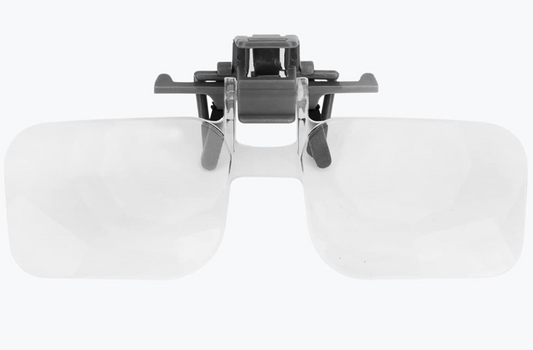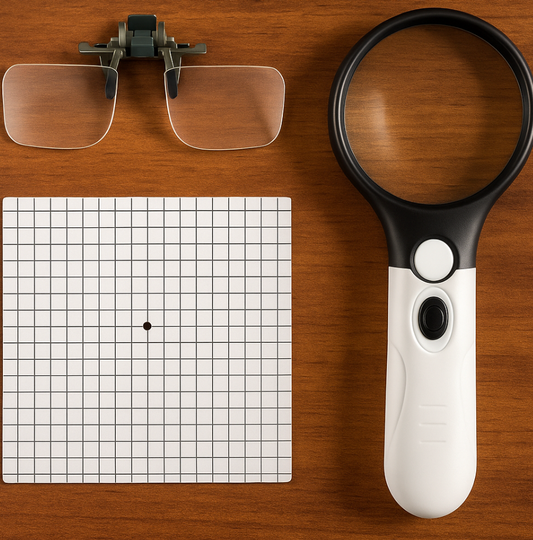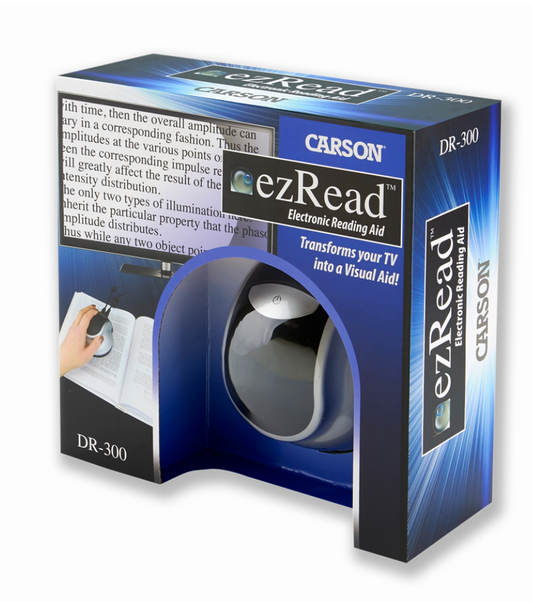AREDS2 Formula for Macular Degeneration - Why It Matters
Share
The History and Benefits of AREDS and AREDS2 Vitamins for Macular Degeneration
Age-related macular degeneration (AMD) is a common eye condition that affects millions of people(living with macular degeneration), causing loss of central vision and impairing everyday activities. To combat this condition, extensive research has been conducted over the years, resulting in the development of specialized vitamins known as AREDS and AREDS2. Let’s take a closer look at the history of these vitamins, their benefits, and important considerations for those taking them.
The Birth of AREDS
The Age-Related Eye Disease Study (AREDS) was a groundbreaking clinical trial conducted by the National Eye Institute (NEI) in the 1990s. This study aimed to find effective ways to slow the progression of AMD in patients with moderate to advanced stages of the disease. Researchers discovered that a specific combination of vitamins and minerals could significantly reduce the risk of AMD progression by about 25%.
The original AREDS formula included:
- Vitamin C
- Vitamin E
- Beta-carotene
- Zinc
- Copper
The formula aimed to provide essential nutrients to the retina, strengthening the eyes’ defense against oxidative stress, a major contributing factor to AMD.
The Evolution to AREDS2
In 2013, the NEI conducted a second clinical trial called AREDS2 to improve upon the original formula. This study aimed to eliminate beta-carotene, which was associated with an increased risk of lung cancer in smokers, and replace it with other carotenoids that provide similar benefits without the risk.
The updated AREDS2 formula includes:
- Vitamin C
- Vitamin E
- Lutein
- Zeaxanthin
- Zinc (in a lower dose than AREDS)
- Copper
The inclusion of lutein and zeaxanthin in the AREDS2 formula provided added protection for the eyes, as these carotenoids are naturally found in the retina and help filter harmful blue light.
How AREDS2 Helps Slow the Progression of Dry Macular Degeneration
AREDS2 vitamins are specifically designed to slow the progression of dry macular degeneration, which is the most common form of AMD. Although there is no cure for dry AMD, the high-dose combination of antioxidants, zinc, and carotenoids found in AREDS2 can help preserve vision for a longer period and reduce the risk of the disease advancing to more severe stages.
Lutein and zeaxanthin, two key ingredients in AREDS2, play a protective role by filtering harmful blue light and reducing oxidative stress in the retina. The combination of vitamins C and E provides additional antioxidant support, while zinc contributes to the structural integrity of the retina. Consistent use of AREDS2 vitamins can help slow the progression of dry AMD, helping patients maintain their vision for as long as possible.
The Science Behind AREDS2
The effectiveness of AREDS2 lies in the science of antioxidants and carotenoids. Antioxidants help neutralize free radicals, unstable molecules that can cause oxidative stress and damage cells, including those in the retina. Oxidative stress is a key factor in the development of AMD.
Lutein and zeaxanthin, found in leafy greens like spinach and kale, are carotenoids that accumulate in the macula and help absorb harmful blue light. This helps protect the photoreceptor cells in the retina from damage, supporting overall eye health.
AREDS2 and Wet Macular Degeneration
While AREDS2 vitamins are primarily formulated for dry AMD, there is evidence to suggest that they may also provide benefits for individuals with wet macular degeneration. Wet AMD occurs when abnormal blood vessels grow under the retina, causing rapid vision loss. Although AREDS2 cannot prevent or cure wet AMD, taking these vitamins may still help support overall eye health and reduce the risk of the disease progressing further.
It is important to note that individuals with wet AMD typically receive treatment through injections, laser therapy, or other medical interventions. AREDS2 vitamins should be seen as a complementary measure to support overall retinal health alongside prescribed medical treatments.
The Role of a Mediterranean Diet
In addition to taking AREDS or AREDS2 vitamins, adopting a healthy lifestyle can further protect your eyes from AMD. Research has shown that following a Mediterranean diet is associated with a reduced risk of AMD progression. This diet includes:
- Plenty of fruits and vegetables
- Whole grains
- Healthy fats, such as olive oil
- Fish and seafood
- Limited red meat and processed foods
- The antioxidants, omega-3 fatty acids, and other nutrients found in a Mediterranean diet support overall eye health and help reduce inflammation. Omega-3 fatty acids, in particular, are known to support retinal health by promoting anti-inflammatory effects and improving circulation to the retina.
- Make sure to read "What Foods Can Prevent Macular Degeneration"
Lifestyle and Environmental Factors
In addition to diet, other lifestyle factors can also impact AMD risk. Avoiding smoking, protecting your eyes from excessive UV exposure by wearing sunglasses, and managing chronic health conditions like high blood pressure and diabetes can all contribute to better eye health and reduced AMD risk.
Future Directions in AMD Research
Ongoing research continues to explore new treatment options and preventive measures for AMD. Some promising areas of research include gene therapy, stem cell therapy, and the development of new drugs that target abnormal blood vessel growth in wet AMD.
While AREDS2 is an effective supplement for slowing the progression of AMD, future breakthroughs may offer even more effective treatments and potential cures for this vision-threatening condition.
MacuMira is a recent therapy approved in Canada for the treatment of dry macular degeneration. Syfovre for Geographic Atrophy has recently been approved in the United States.
Consult Your Eye Doctor
While AREDS and AREDS2 vitamins can be highly beneficial for those with moderate to advanced AMD, it’s important to remember that they are not a cure. These supplements are designed to slow the progression of the disease, not to restore lost vision. Always consult with your eye doctor before starting any new vitamin regimen to ensure it is safe and appropriate for your specific health needs.
By understanding the history, benefits, and considerations of AREDS and AREDS2, you can make informed decisions to protect your vision and maintain your eye health for years to come.
Recently, there has been some concerns about AREDS and patients with certain genetic make-up - we are currently working on getting more information for our next post about AREDS2 to help you make informed decisions about your health.
Recently diagnosed? Here are 10 Questions you will want to ask your eye doctor.



